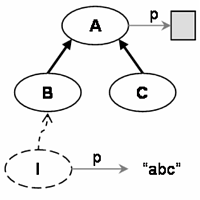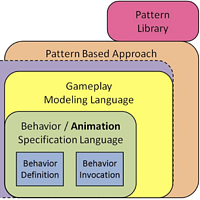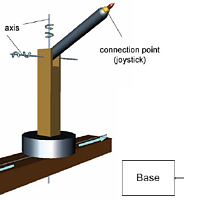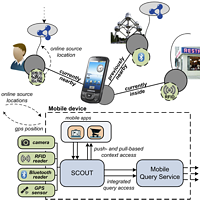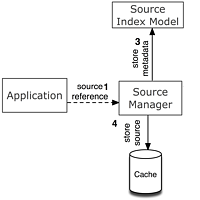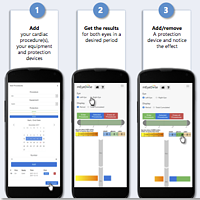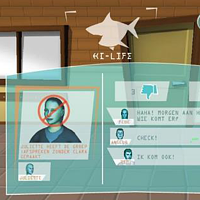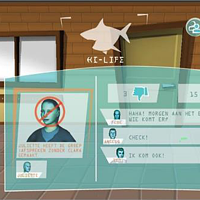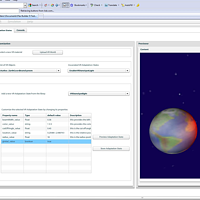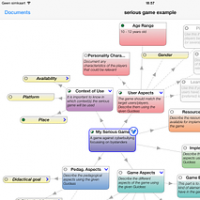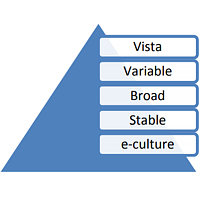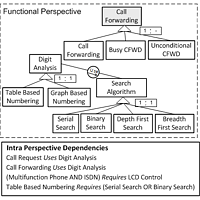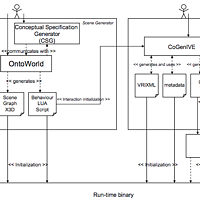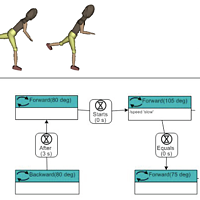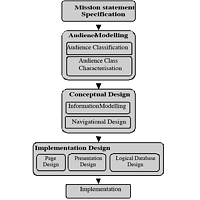Research Projects of olga de troyer
The number of youngsters (from 18 to 24 years old) who leave school without having obtained an upper-secondary education degree and who do not follow any type of education is much higher within the Brussels Capital Region than the Belgian average. Furthermore, in comparison to the Flemish and Walloon Regions the numbers for Brussels also prove comparatively elevated. In 2014, the school dropout rate for the Brussels Capital Region was 14,4%, while 7% for Flanders and 12,9% for Wallonia.
In this project, WISE studied the problems related to the evolution of ontologies. As is the case with everything in the world that surrounds us, ontologies are not indifferent to changes. Ontologies evolve as a consequence of changes of domains they describe as well as changes in business and user requirements. Because ontologies are intended to be used and extended by other ontologies, and because they are deployed in a highly decentralized environment as the Web, the problem of ontology evolution is a far from trivial problem. The fact that ontologies depend on other ontologies means that the consequences of changes don’t remain local to the ontology itself, but affect depending ontologies as well. Furthermore, the decentralized nature of the Web makes it impossible to simply propagate changes to depending artifacts.
A first purpose of this project is to investigate the cognitive processing involved in educational games and its impact on learning. The second purpose is to investigate how we can influence these cognitive processes by using adaptive techniques. Among others, we investigate the impact of the personality, the learning style, as well as the motivational aspects of learning by manipulating different aspects of the educational game.
The major goal of this project is to develop a generic Design Pattern based methodology for specifying behaviors at a conceptual level for computer games and other interactive media applications such as virtual museums, virtual learning platforms.
The main purpose of this project is to introduce conceptual modeling concepts to specify complex 3D objects in Virtual World and to rigorously define the semantics of these new modeling concepts using logic.
SCOUT is a mobile application development framework, which supports the development of mobile applications that are aware of the user's context (e.g., profile, device characteristics, ..), his current (physical) environment, and the people, objects and places in it. By exploiting this knowledge on the user and his environment, such applications are able to provide personalized information and services to the user. SCOUT supports different sensing technologies to become aware of the user's surrounding environment (and the physical entities in it), and is primarily based on Web technologies for communication and data acquisition, and Semantic Web technologies for integrating and enriching the knowledge present in the decentralized data sources.
This project investigates distribution in querying on ontology-based data stored in a distributed collection of Semantic Web systems. With the data not being stored in a single repository, but being offered through a network of connected repositories, we come one step closer to a true Web-like platform for information sharing. Obviously, the querying and retrieval of data from that network needs to take the aspect of distribution into account without losing the benefits of the formal grounding for dealing with ontology-based information.
In the context of an European epidemiological study EURALOC, WISE developed a mobile app to predict, track, calculate and simulate the eye lens radiation dose received by an interventional cardiologist during procedures.
The app, called mEyeDose, is free and available on http://www.meyedose.eu/
The flyer can be downloaded here
The goal of project is to research in a scientifically founded manner how ICT-based interventions (or intervention parts) can be used in the battle against (cyber) bullying. The emphasis is on the mapping of the problem of (cyber) bullying as well as on the developing and testing of dynamic, state-of-the art ICT applications in order to tackle the problem. In order to give this project shape, the so-called “intervention Mapping Approach” is followed.
Friendly ATTAC will study and develop an innovative ICT tool to help youngsters deal with cyberbullying issues. By means of highly personalized virtual experience scenarios, providing players with immediate feedback in a safe computer-mediated environment, we will attempt to modify relevant determinants of behaviours related to the roles of bullies, bystanders and victims.
GRAPPLE is a EU FP7 STREP project aiming at delivering learners with a technology-enhanced learning (TEL) environment that guides them through a life-long learning experience, automatically adapting to personal preferences, prior knowledge, skills and competences, learning goals and the personal or social context in which the learning takes place.
As a project partner, WISE is focusing on adaptivity for new learning media, specifically Virtual Reality, to enhance the personalized learning experience of e-learners.
GuideaMaps is a flexible tablet (iPad) app that supports the requirements elicitation phase for domain-specific software. It is usable by non-computing as well as computing people, as building domain-specific software requires the expertise of people with very different background. The app guides the users through the requirement elicitation by providing a (customizable) list of issues to consider. The app provides explanations, indicates which issues are required and which are optional, provides options and alternatives, indicates the impacts of choices, and documents choices made. The tool can be used in meetings or individually.
In this project we want to combine the research activities done in the context of software localization with those done in the context of website design. We believe that research in localization and internationalization of websites (and software in general) may benefit from a cooperation between researchers from the software localization community (which are mainly linguists or computer linguists) and researchers from the web design community (mainly computer scientists). Such a corporation may give new insights and may result in new techniques in both domains.
QuTi is a research project performed in the context of iBrussels, a research project on Wi-Fi Architecture financed by the Brussels Capital-Region and supervised by Centrum voor Informatica voor het Brussels Gewest (CIBG). In QuTi, WISE developed a framework that provides real-time information on queue-sensitive events. QuTi relies on existing detection technologies to monitor crowds and measure bustle, and delivers this time-sensitive information real-time through a Web site and a mobile application. Based on this real-time information, visitors can decide when is the best time to visit.
The framework has been applied to measure the traffic in the student restaurant of the VUB.
For years, the logic course in the first year of our Bachelor in Computer Science was a serious hurdle for many students. Most of the students computer science perceive the formal and abstract mechanisms of logic as difficult and awkward to deal with. We have seen a lot of procrastination with regard to studying this subject.
VariBru is a research project initiated in the framework of the Brussels Impulse Programme for ICT. It is supported by the Brussels Capital Region. The VariBru project addresses the strategic problems of software-intensive product builders. Its innovation goal is to perform research in four industrially relevant domains of software variability: software variability management, software product configurability, variability in live contexts, and variability in intention-aware products.
As a project partner, WISE is investigating the focussing on modeling the software variability. Read more on http://www.featureassembly.com
The proposed research will result in a set of generic concepts and techniques usable for conceptual modelling and realizing virtual environments. The ultimate goal is to facilitate and shorten the development process of virtual environments by means of conceptual specifications.
In the project, WISE will develop a set of generic concepts usable for the conceptual modeling of the static part of a virtual environment, as well as for specifying the behaviors required in the virtual environment. WISE will also investigated how the actual virtual environments can be realized by means of such high-level conceptual specifications (i.e. code generation). Also tool support will be developed.
The VR-WISE research started some years after WISE was founded. The focus of this research was on the conceptual modeling of Virtual Reality Environments.
WISE developed as one of the first few a Web site design method, called WSDM (1998). This method followed a completely new approach in designing Web applications, called the ‘audience driven’ approach, which is nowadays followed by many Web design methods. The original WSDM method, and its associated modeling formalisms has evolved over the years to a complete ‘semantic’ web design method, both applying and deploying semantic web technology, and supporting the generation of semantic annotations. Different master student and PhD students have considered and still consider a variety of additional design issues, such as adaptivity, localization, accessibility, and social tagging, while others have focused on code generation and tool support.



